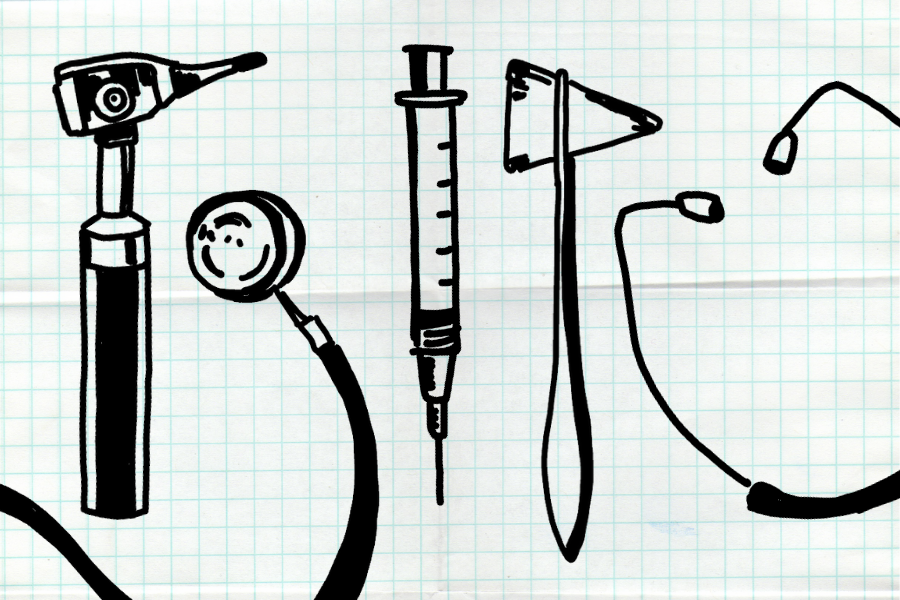As premedical students balance multiple stressors, advising offers some guidance
Caped Clinicians is a startup publication founded by Northwestern students working to make scientific literature more accessible.
April 19, 2022
When Weinberg freshman Joanne Li began the premedical track at Northwestern this fall, she said she quickly became anxious about everything she had to do to get into medical school.
“When you look at other people who are handling so many different things at once, you just feel imposter syndrome,” Li said. “This list of things that I have to do is so overwhelming. How am I going to be able to handle it all?”
Li turned to pre-health advising for help and has used advisors as a tool to find different extracurriculars and opportunities. Felicia O’Rourke, a premed advisor and the assistant director of Health Professions Advising, said about 92% of pre-health students at NU are on the premed track. Advising guides students through course selection and the medical school application process, she said.
When addressing student mental health, O’Rourke said advising provides students with what they need in the moment, connects them to mental health professionals and checks in to regularly support student needs.
“Awareness of student mental health is at the forefront of our advising practices,” O’Rourke said in an email to The Daily. “Therefore, we work closely with campus partners to ensure students know where and how to access mental health services and obtain the appropriate mental health support.”
Li said her experiences with advising have left her feeling more reassured. When she felt overwhelmed by the workload some of her peers took on, she said her advisor calmed her down by pointing out that she wasn’t behind on the path to medical school.
However, Li said she sometimes feels her doubts resurface when her advisor’s words don’t line up with what she sees her peers doing.
“A lot of the conversations I have with my advisor will go, ‘Do I need to be doing this right now?’ and she’s like, ‘You’re just a freshman, most people don’t do this until they’re sophomores,’” Li said. “But I do know freshmen who are doing what she’s saying, and as a freshman who has done some of the things she said only sophomores do, I just don’t know.”
Weinberg sophomore Ben Katz also said the premed track begins to feel competitive when he sees many students engaging in multiple opportunities while also succeeding academically. The pressure can be challenging to navigate, he said.
While advising is a starting point, Katz said there is only so much guidance the program can provide. During the COVID-19 pandemic, he said it was difficult to find hospitals open to taking volunteers.
Research opportunities are also dependent on how well students connect with their professors, something he said has been difficult because of the large size of most introductory courses.
“I think they’ve given their best effort,” Katz said. “I’ve had two advisors during my time here, and they have done their best to connect me with different things, but all they can really do is point you in the direction of what you should be doing, not necessarily connect you with those opportunities themselves.”
Email: [email protected]
Twitter: @joannah_11
Related Stories:
— Pre-med students gain experience through shadowing program
— Northwestern Medicine to manage Health Service in Evanston


